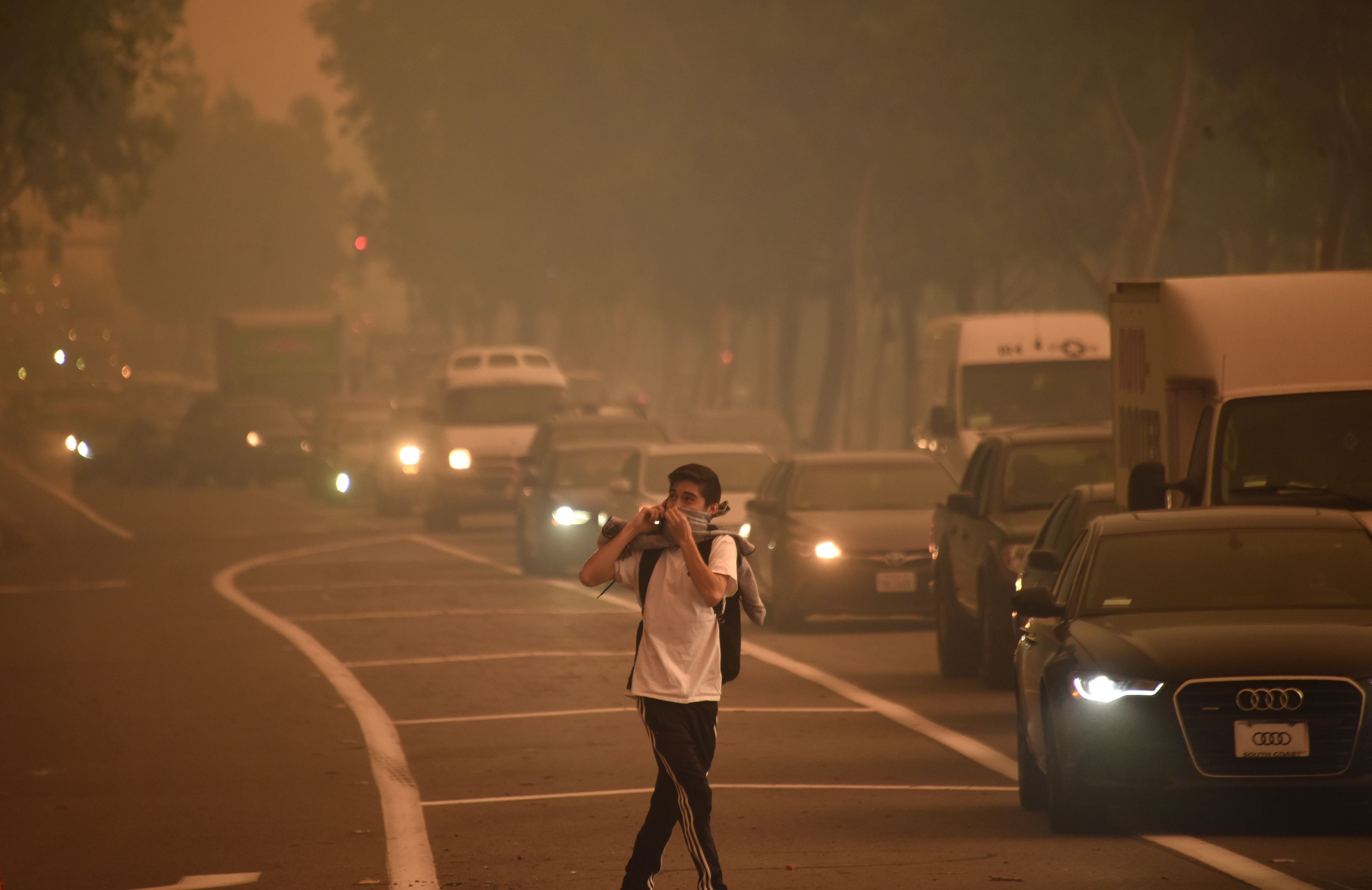It’s all that is in the news these days: California wildfires are wiping out a part of the western United States. Families are losing their homes, and there have been confirmations of at least one death throughout the course of the fire, which is likely to become the largest in the history of the state.
With this part of the country experiencing similar occurrences on a yearly basis now, one can only imagine what individuals returning to their homes and towns following the disaster will find. How will this affect the college and university students of the Golden State? Let’s take a look.
Homes, dorms and apartments are likely to be obliterated
Of course, not every house in the whole of California is going to be destroyed, thankfully. However, there is very likely to be a significant amount of damage to many homes across the state. Reports have indicated that one couple lost two homes in two months due to California’s furious wildfires. If homes and towns are lost, chances are that dorms and other campus facilities will receive at least some damage throughout the course of the fires.
If this damage does not occur as a result of a direct hit from the fires, it might take place because of the recklessness of individuals’ actions during the fires (looting, for example) or because of the students’ and staffs’ quick attempts to evacuate from campus.
Water and food shortages are likely
With authorities utilizing water and other firefighting materials in an attempt to lessen the strength of these terrible fires, they might be leaving citizens of California in a circular fire system.
Fire requires a large amount of water to be weakened or put out. Both fire and this lack of water cause dry foliage and vegetation, which make the land more susceptible to fire; fires then occur, making the ground even drier than it was before and causing a general lack of both food and water.
This might have implications larger than just the campus cafe no longer offering water for free. It might seem unfathomable that an establishment would charge for ice water, but where I live, following the natural disaster of Hurricane Irma, Dunkin’ Donuts charged for ice water. Yes, you read that correctly.
This is likely to happen again
California fires have been anything but uncommon over the past several years, and CNN recently reported that the state’s governor, Jerry Brown, is fairly confident that such fires are to become more constant in the coming years. Brown told CNN, “we have to have the resources to combat the fires and we also have to invest in managing the vegetation and forests…in a place that’s getting hotter.”
The ongoing fire has been named the fourth largest in the history of the state of California; however, reports claim that it could soon be presented with the title of “largest.” If fires continue to overrun the state of California, chasing its inhabitants from place to place until they’re crossing state lines, students are likely to consider transferring if there is anything left to transfer from.
Upcoming classes will be canceled
Returning from the holiday break, students might not have a campus to return to. In fact, “Inside Higher Ed” recently said that classes were canceled on several college campuses, including University of California, Los Angeles, for reasons all stemming from the fires, such as “fire, evacuations, power outages, poor air quality and travel restrictions.”
According to “Higher Ed,” classes were classes were also canceled due to traffic issues that resulted from the wildfires. If this is the case and these fires continue to go on, chances are that classes in the new year will be canceled due to structural damage, power issues and even fires that have reached campuses, such as UCLA and Oxnard College.
Hopefully, as repairs are made to damaged infrastructure, any classes that are postponed will only be so for a short period of time, students and their families can find new places to live (if their homes have experienced any disturbances relating to this fire) and, as was the case in 2017 hurricanes Irma and Harvey, evacuees will be able to return and see what’s left of their living area.
Some have yet to see finals
Some schools in the fire-ridden area have pushed finals back until the spring semester. One such school is Thomas Aquinas College, a Catholic college that found itself too close for comfort to the flames that have engulfed so much and destroyed even more. Although Thomas Aquinas College had not, as of December 15, experienced any major infrastructural damage apart from that which happened to a small, on-campus storage unit, some students and staff members found themselves displaced and were given few options apart from just going back to their home states (unless, of course, they’re from California).
The western wildfires have negatively affected the lives of many Californians, leaving them homeless with no place to go. Perhaps one of the worst parts of this occurrence is that it has taken place in December, a time when students return home to spend time with family and celebrate the many holidays of the month. Consequently, the loss of homes, a life and campus facilities will have even more of an impact on college students and staff members as they prepare to return to on-campus activities in the new year and consider the work that will have to be done to move forward with the restoration of California.

















